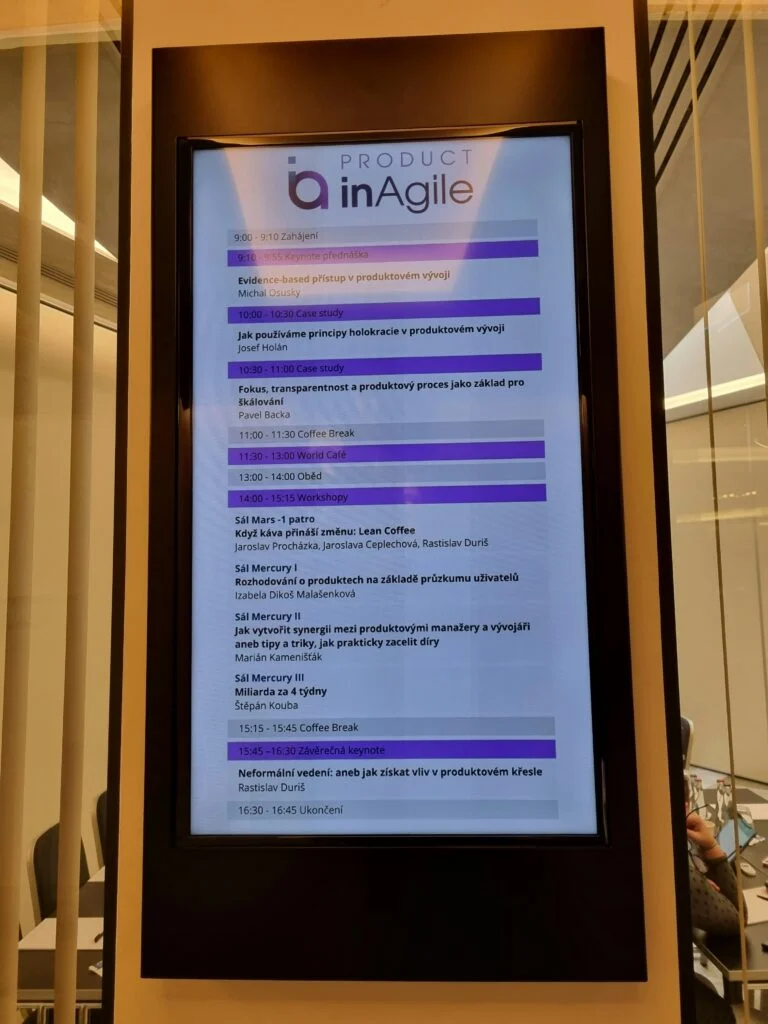Why I Did It
In today’s fast-paced world, many individuals experience a profound sense of burnout related to traditional planning methods. The constant pressure to meticulously allocate time for each task can lead to decision fatigue, where the act of making choices becomes overwhelming. This burnout prompted my exploration into an unconventional method—paying strangers to plan my entire day. It was an opportunity to delegate the burden of decision-making and to alleviate the strain associated with chronic over-planning.
The allure of spontaneity played a significant role in my decision. In an era dominated by structure and rigid schedules, the prospect of embracing uncertainty was refreshing. I found myself craving the freedom to engage in experiences outside of my usual comfort zone. By relinquishing control and allowing others to shape my day, I aimed to cultivate a sense of adventure and discover new activities that I might not have chosen for myself. This desire for novelty reflects a broader societal trend where many people seek unconventional solutions to enhance creativity and productivity.
Moreover, this approach is indicative of a growing movement that encourages individuals to challenge conventional norms. Some advocate for embracing chaos as a catalyst for innovation, pushing back against the productivity paradigms that have often governed our lives. By outsourcing my daily agenda to others, I hoped to tap into diverse perspectives and fresh ideas, fostering a more varied and enriching experience. The result was not merely a day devoid of my habitual planning but an experiment in human connectivity and imaginative fluidity.
Ultimately, by allowing others to dictate my agenda, I sought to reinvigorate my daily routine and combat the fatigue that comes with meticulous planning. This venture represented a departure from traditional productivity strategies and an embrace of spontaneity and exploration in an increasingly structured world.
Tired of Planning and Burnout
The burden of incessant planning can weigh heavily on the mind, leading individuals to experience emotional fatigue and burnout. In an era where prioritizing productivity often equates to meticulously scheduling each moment, many find themselves overwhelmed by the demands of creating perfect agendas. The incessant pressure to maximize every hour can trigger feelings of anxiety, dissatisfaction, and an overarching sense of being trapped in a never-ending cycle of tasks.
For some, the signs of burnout become painfully evident. Tasks that once provided fulfillment transform into sources of stress, leaving individuals questioning their commitments and, ultimately, their decisions. The feeling of being overburdened by the weight of planning can cloud the joy derived from both personal and professional pursuits. Reflecting on my own experiences, I recognized moments where the sheer volume of organization led to a reduced capacity for creativity and innovation. Instead of thriving, I often found myself merely surviving, with rigid schedules restraining spontaneity and joy.
Moreover, the emotional toll does not just remain internal; it impacts productivity as well. The constant need to curate every aspect of the day can lead to a paradox where productivity decreases despite an individual’s substantial efforts. Taking a step back to analyze my daily routine, it became clear that excessive planning was often met with burnout, undermining the very goals I sought to achieve. This realization sparked the consideration of an unconventional approach: relinquishing control to strangers for the day, hoping to break free from the shackles of rigid schedules. Allowing others to dictate plans seemed like a daring endeavor, inviting a sense of chaos that, paradoxically, could lead to rejuvenation and rediscovery of productivity.
Social Experiment Idea
The concept of outsourcing daily planning to strangers serves as a fascinating social experiment that questions the boundaries of control, productivity, and human interaction. The premise is simple yet intriguing: by delegating the responsibility of planning one’s day to others, individuals can explore the unknown and experience an arrangement devoid of personal biases. This approach not only challenges conventional notions of productivity but also paves the way for unanticipated outcomes.
To facilitate this experiment, various platforms were utilized to engage with strangers willing to take on the task. Popular freelance websites, such as Fiverr and Upwork, were instrumental in attracting participants who offered their services with diverse backgrounds and skills. Each participant was provided with a brief outline of my preferences, along with general guidelines to maintain coherence throughout the day. The commissioned tasks included developing a schedule, selecting activities, and identifying meal options, ultimately enveloping a broad spectrum of daily engagements.
Additionally, social media channels provided an avenue for connecting with individuals who were already immersed in alternative lifestyle practices, ranging from time management enthusiasts to creative thinkers. This amplification through online communities was vital in not only attracting volunteers but also fostering an environment where shared experiences could be amplified and evaluated.
The curiosity surrounding how strangers could influence the trajectory of a day plays a pivotal role in the experiment’s overall essence. It highlights the unpredictability of human nature and the potential for innovative ideas. By surrendering control and allowing an outside perspective to shape daily activities, participants could observe varying perspectives on productivity. This engagement with others creates an opportunity for reflection on habitual routines and introduces the possibility of radical change, ultimately driving a deeper understanding of the self and the dynamics of time management.
The Day Begins
Waking up to an itinerary crafted by strangers is an experience that invites a whirlwind of emotions. As I opened my eyes to find my phone buzzing with notifications, a mixture of anticipation and curiosity washed over me. The very notion that others had taken the reins of my day was exhilarating and terrifying in equal measure. I glanced at the screen, where a meticulously planned schedule awaited me, detailing the activities and destinations that would shape my day ahead.
The excitement was palpable as I reviewed the first few entries on my agenda. Thoughts of adventure and spontaneity danced in my mind, contrasting with underlying feelings of nervousness. What if I did not enjoy the activities proposed by individuals who, just hours before, were complete strangers? What if I was thrust into uncomfortable situations that would challenge my comfort zone? Despite these internal conflicts, the promise of an unusual day ahead was too intriguing to resist.
As I prepared for the unfolding day, I dressed carefully, aware that I was stepping into an unknown realm dictated by the choices of others. The initial jitters transformed into a sense of liberation. I felt like an explorer, ready to navigate the unknown. What experiences awaited me? Would there be moments of joy and unexpected connections? The uncertainty sparked a thrill within me.
With the designated time to leave fast approaching, I took a deep breath, both excited and anxious about stepping outside. This was no ordinary day; it was a day curated by the whims of strangers who had taken time to construct a narrative for me. As I embarked on this journey, I resolved to embrace whatever came my way, ready to discover whether this chaotic arrangement would lead to unexpected productivity or simply a day of random escapades.
Wild Surprises
When I entrusted strangers to plan my day, I anticipated a range of experiences, yet the reality surpassed my expectations in both delightful and bewildering ways. From the outset, the planned itinerary felt like a whimsical game of chance, each unexpected turn bringing its own set of surprises that challenged my comfort zone and preconceived notions of productivity.
One of the most memorable surprises occurred early in the day when I found myself at a bustling farmers’ market. Strangers had chosen this venue, and while I typically preferred more structured environments, wandering amongst vibrant stalls filled with exotic fruits and handmade crafts was invigorating. Engaging with local vendors felt like a spontaneous adventure. I struck up conversations with artisans and tasted unfamiliar delicacies, which sparked a sense of curiosity and excitement that would permeate the rest of my day.
Another highlight involved a surprise spontaneous dance class at a nearby studio. Initially, I hesitated at the thought of participating in such an impromptu event, feeling a mix of embarrassment and apprehension. As the class began, however, the infectious energy of the instructor and fellow participants swept me along. It was an exhilarating experience that transformed my initial discomfort into unrestrained joy, proving that sometimes, stepping outside one’s comfort zone unveils unexpected treasures.
Of course, not all surprises were pleasant. A detour to a local escape room turned chaotic as my group struggled to decipher clues while racing against the ticking clock. Laughter erupted as we fumbled and debated solutions, illustrating our different problem-solving approaches. These moments of frustration often morphed into humorous anecdotes, reflecting the beauty of spontaneity: unpredictability fosters camaraderie, even amid chaos.
In essence, the wild surprises orchestrated by strangers infused my day with a vibrancy I had not anticipated, reminding me that sometimes, letting go of control can yield the most memorable experiences.
Tasks I Never Imagined Doing
Engaging with strangers to plan my day resulted in an array of unconventional tasks that often felt alien yet strangely exhilarating. One of the first activities involved visiting a local pottery studio, something I never thought would pique my interest. As I immersed myself in molding clay, I discovered a new form of creative expression I had long neglected. The tactile sensation of shaping the material not only heightened my focus but also ignited a passion for hands-on art that I had forgotten amid the noise of daily responsibilities.
Another surprising assignment was to attend an improv comedy class. While my initial thought was to shy away from such a spontaneous environment, I was urged by the organizers to step out of my comfort zone. Embracing this challenge, I learned the art of improvisation not only sharpened my quick-thinking skills but also encouraged me to embrace failure as a pathway to growth. The laughter shared with fellow attendees highlighted the importance of community and connection, reminding me how impactful humor can be in reducing stress.
A deeply unconventional task required me to spend an afternoon volunteering at an animal shelter. Initially, I viewed this as a simple act of goodwill, but it evolved into a profound experience of empathy and responsibility. Connecting with the animals brought an unexpected sense of fulfillment and demonstrated the power of compassion. Each task throughout the day pushed me to explore parts of my personality that had been suppressed beneath routine obligations.
Ultimately, these various experiences served as a catalyst for self-discovery. By stepping into the unknown, I unearthed new interests and reignited curiosity in pursuits I had long abandoned. The organized chaos forged by the strangers’ assignments proved that embracing uncertainty can lead to personal growth and a renewed zest for life.
Cringe or Genius?
The experience of entrusting my day to total strangers raised an intriguing dilemma: was it a moment of sheer folly or a clever insight into my habitual routines? As I relinquished control, I oscillated between feelings of apprehension and unexpected thrill. The diversity in planning styles presented me with activities I would typically shy away from, prompting a profound reflection on my own preferences and boundaries. Some decisions made by my appointed planners were undeniably cringe-worthy—like the spontaneous visit to a mime performance, which tested my comfort level in social situations. Yet, these very moments challenged my usual aversion to the unpredictable.
Feedback from the individuals who orchestrated my day was equally enlightening. Their perspectives revealed a stark contrast to my own. For instance, one planner, whose creativity eclipsed my own, suggested visiting a local art installation. Initially, I deemed it a waste of time, but it turned out to be a highlight, igniting an appreciation for art I had overlooked. This divergence in viewpoints highlighted the value of external perspectives in broadening one’s horizons.
Engaging in this experiment not only illuminated my own habits but also underscored the potential benefits of embracing spontaneity. Surprisingly, some interactions fostered a newfound appreciation for social participation, as I navigated unfamiliar situations largely out of my comfort zone. Ultimately, the day encapsulated a fusion of moments that were at times cringeworthy yet were often followed by exhilarating discoveries, leading me to ponder whether the endeavor was a touch of genius after all. This duality of experiences serves as a reminder that stepping outside one’s comfort zone can yield unpredictable and valuable insights.
What Happened When I Gave Up Control
In a world that often prioritizes meticulous planning and rigid schedules, my decision to forfeit control over my day sparked a transformative journey. Surrendering the reins to strangers unveiled layers of spontaneity and unpredictability, challenging deeply entrenched beliefs about productivity. As I embraced this uncertainty, I discovered a new engagement with life that filled my day with unexpected encounters and thrilling activities.
Initially, the lack of a structured plan induced a sense of anxiety. Thoughts of wasted time and missed opportunities loomed large. However, as the day unfolded, these anxieties were gradually replaced by a remarkable flexibility. Sudden changes in plans encouraged adaptability, fostering a mindset tuned to innovation. Each new suggestion from my appointed planners revealed a world brimming with possibilities; I found myself saying ‘yes’ to experiences I might have otherwise overlooked.
This unforeseen journey illuminated the profound connection between creativity and unpredictability. By relinquishing control, I became more attuned to the present moment, allowing inspiration to flow freely. Simple activities, such as a spontaneous stroll through a local park or an unplanned coffee break at a vibrant café, invited opportunities for creativity to flourish. These encounters not only enriched my day but also nurtured a deeper enjoyment of life—reminding me that not every moment must be carefully crafted or optimized.
Conventional wisdom may emphasize the importance of control in boosting productivity; yet, my experience challenged this notion. By allowing others to influence the direction of my day, I tapped into a reservoir of creativity and spontaneity that is often stifled by rigid planning. Embracing chaos transformed potential anxiety into a joyful exploration of life’s unexpected delights, demonstrating that relinquishing control can indeed lead to a more fulfilling and vibrant existence.
The Productivity Paradox
In exploring the dynamics of productivity, it is essential to consider the unconventional approach undertaken in this experiment. By relinquishing control and allowing strangers to orchestrate a person’s daily activities, one may confront the very foundation of what constitutes productivity and efficiency. This engagement with chaos challenges traditional narratives surrounding time management and structured planning, prompting a closer examination of their efficacy.
On one hand, the inherent unpredictability of such an arrangement can lead to feelings of disarray and tension. However, an unexpected benefit may arise: the opportunity to embrace spontaneity. When structured routines give way to unplanned experiences, individuals may find themselves engaging more fully with their surroundings. This heightened awareness can foster creativity and innovation, which are often stifled by rigid scheduling. In fact, moments of chaos may serve as catalysts for unanticipated insights, nudging individuals to think outside the conventional boundaries of productivity.
Moreover, this examination raises questions regarding the duality of meaningful experiences—those that are properly planned against those that emerge organically from unpredictability. Striking a balance between these two perspectives can yield a deeper sense of satisfaction and fulfillment in one’s daily life. When we embrace imperfect days that deviate from our expectations, we enrich our understanding of what productivity entails. It becomes evident that fulfillment may not solely arise from completing tasks but rather from the quality of experiences we cultivate along the way.
Ultimately, the experiment illuminates a potential paradigm shift in how we perceive productivity. It suggests that, rather than viewing chaos as detrimental, we can reinterpret it as an essential component of an enriching life experience. Redefining productivity through the lens of meaningful engagement rather than mere task completion may lead to more profound insights and ultimately, a more satisfying existence.

It could cover a range of topics related to health, wellness, beauty, personal growth, and social issues, all from the perspective of striving for beauty, intelligence, youthfulness, and impartiality





